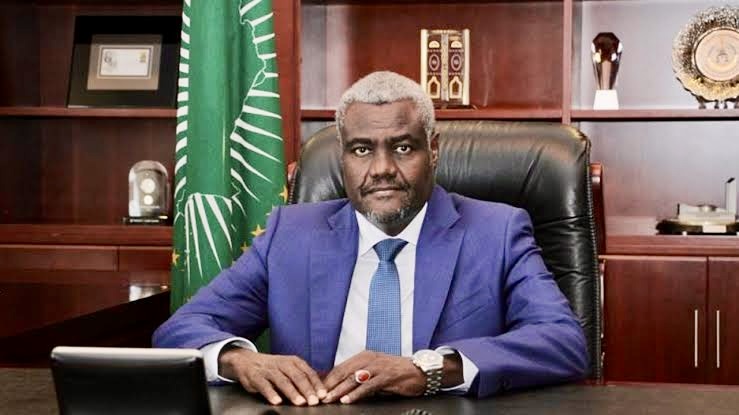
Faith Nyasuguta
The African Union Commission (AUC) recently encountered a cybercrime incident involving scammers who employed artificial intelligence to impersonate Moussa Faki, the head of the organization.
Traditionally, the Secretariat of the African Union reaches out to world leaders through written correspondence, or a note verbale, when Chairperson Moussa Faki is scheduled to engage in calls with them.
However, cybercriminals seized upon this protocol and posed as Faki. They initiated video calls to European cities while pretending to arrange meetings. The scammers also utilized bogus email accounts, impersonating the AUC’s deputy chief of staff in their efforts to schedule phone meetings between foreign leaders and Faki.
With sophisticated video manipulation, they managed to convincingly impersonate the chairwoman during video conversations with several European leaders, as confirmed by Faki’s spokesman, Ebba Kalondo.
The AUC emphasized its standard communication approach, which involves engaging with foreign governments exclusively through their Embassies in Addis Ababa, Ethiopia, and expressed regret over these incidents in a statement.
“The African Union Commission reiterates its strict adherence to diplomatic protocol and exclusive usage of Note Verbale for high-level engagement requests,” Ms. Kalondo stated through Twitter.
While the motivations behind the imposters’ actions remain unclear, the use of “phishing” in the fraudulent emails suggests they may have sought to steal digital identities to access sensitive information.
Cybercriminals commonly employ deep fake technology, using artificial intelligence algorithms to create manipulated videos or audio recordings of individuals saying or doing things they never did. These deep fakes are used for various malicious purposes, including spreading propaganda and disinformation.
Africa faces the challenge of developing a regulatory framework for the use of artificial intelligence. Despite over 2,400 AI organizations operating across various industries on the continent, a comprehensive regulatory framework is yet to be established.
Some African countries have taken steps in this direction, with Egypt launching its national AI strategy in 2021. Tunisia has established an AI-focused industry association, while Kenya has an AI task force to provide guidance on the use of AI for development.
Rwanda has also created a technology center of excellence focused on digitization. Although Nigeria lacks a national AI policy, its National Digital Economy Policy and Strategy 2020-2030 led to the establishment of the National Centre for Artificial Intelligence and Robotics.
As in Europe, Africa must develop a robust and inclusive approach to multi-stakeholder regulation to effectively oversee the widespread use of AI technology.
RELATED:




